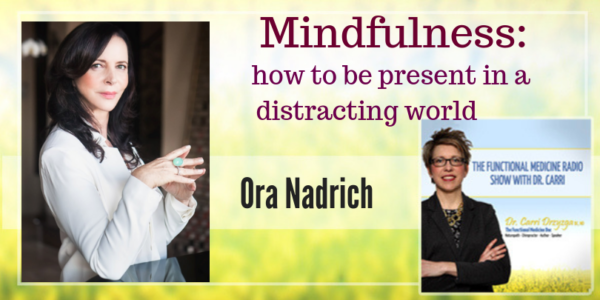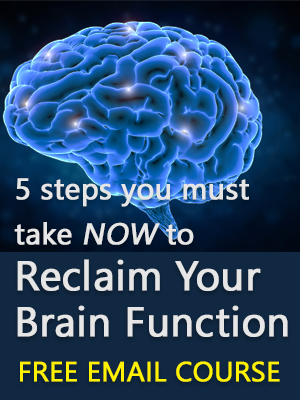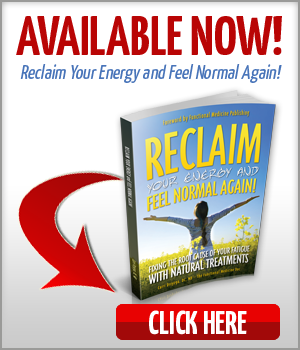Podcast: Play in new window | Download
Subscribe: Apple Podcasts | Android | RSS
In this episode of The Functional Medicine Radio Show, Dr. Carri’s special guest Ora Nadrich explains mindfulness.
Ora Nadrich is a certified Life Coach and certified Mindfulness Meditation teacher as well as the author of the groundbreaking book, “Says Who? How One Simple Question Can Change the Way You Think Forever.” Ora’s rare combination of insight, intuition, compassion and charisma has made her one of the most effective and sought-after life coaches in Los Angeles.
Main Questions Asked about Mindfulness:
- What is mindfulness and what does that mean to you?
- How do we learn mindfulness?
- What’s the difference between mindfulness and meditation?
- Is mindfulness like a muscle – the more we exercise it, the better we get at it?
- As we get better at practicing mindfulness, what are the benefits that we’re going to see from that?
- What does mindfulness feel like? How do we know that we’re there?
Key Points made about Mindfulness by Ora:
- I think things like mindfulness and meditation sometimes can sound complicated to people, when in fact, the essence of mindfulness is actually rather simple. For me, it is being present. That is the simplest definition of mindfulness: being present.
- Mindfulness is an inherent quality that each and every one of us has. It’s there. We just don’t always use it.
- Mindfulness goes into all the areas of our lives. Mindfulness goes into eating, it goes into communication, it goes into listening, it goes into how we taste our food.
- You bring present moment awareness into your meditation, and without getting too complex about it, you also bring your meditation out into the world.
- By being present, you are more aware. And when you’re more aware, you’re aware of the thoughts that you’re thinking, whether they be negative or positive.
- The work of mindfulness and/or meditation is really to help us discipline our mind. Same with the Says Who? method; to discipline your mind, not to readily accept negative thoughts, but to work with your mind so that you can cultivate and curate, is a word I like to use more, positive thoughts. It’s being more selective of our thinking mind. That takes discipline.
- People have very high expectations of, “Well, I have to be an expert at mindfulness immediately, and I have to be the type of meditator that doesn’t have any thoughts going through my mind.” Well, that’s not realistic, and that’s actually really harsh. It is counterproductive and counterintuitive to the very thing that you want to accomplish, and that is to learn something, show up for it, and just be willing to try.
- The path of awareness, the path of awakening, the path of being more mindful really asks us to be more gentle with ourselves in the process.
- These are the moments of our lives. We’re not going to get this moment again. If we counted all the moments that we basically waste, it’s shocking how much time we waste needlessly. So I think it conserves our energy, our time, our lifespan, if you will. It calms us down, it helps us really be who we are in the moment, because we learn to accept who we are in the moment.
- I would say begin now. Say, “I’m ready to have a relationship with mindfulness, starting now, and I’m ready to be present now, and I’m going to show up for my life now.” And start from this moment onward. I’m excited. I mean, it excites me to get people connected to their mindfulness ability. It’s there. Just go for it.
Resources Mentioned about Mindfulness:
Book – Says Who? How One Simple Question Can Change the Way You Think Forever
Book – Reclaim Your Energy and Feel Normal Again
Thank you for listening! If you enjoyed this podcast, please subscribe and leave a 5-star rating and review on iTunes!




